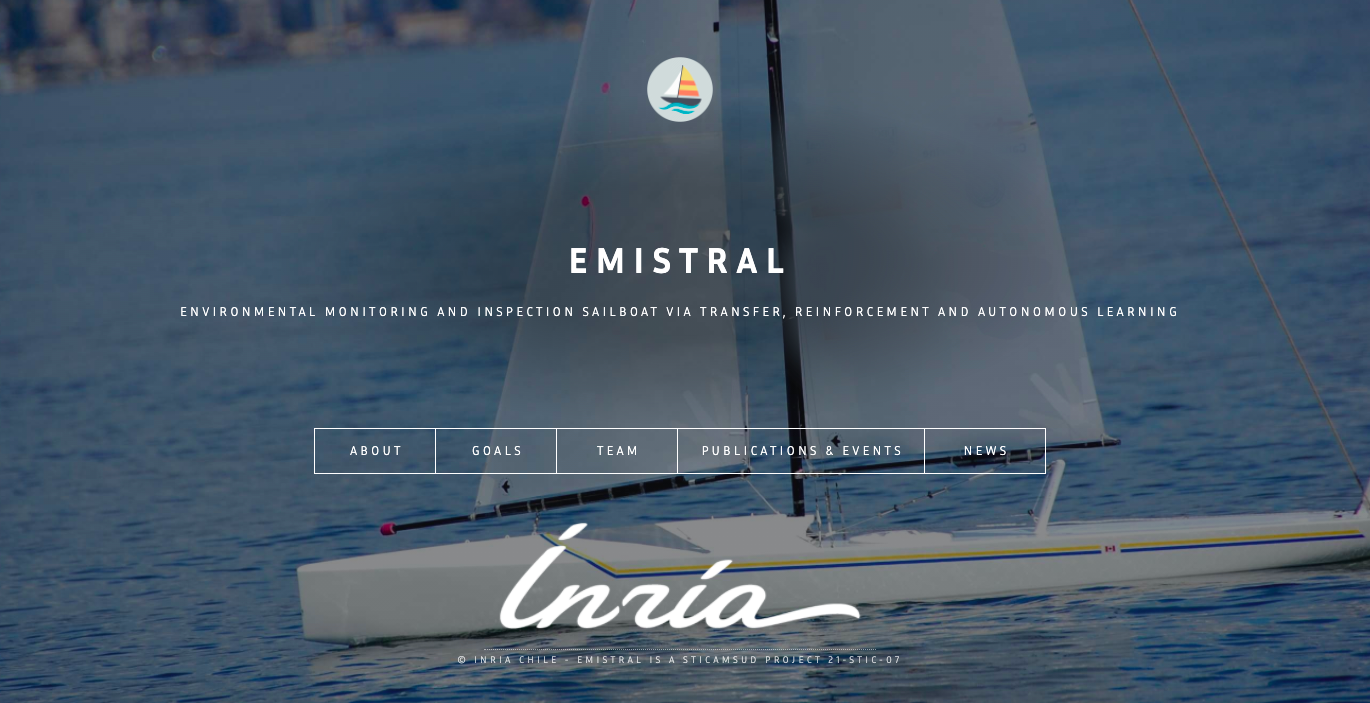
The EMISTRAL project aims to design a controller for autonomous sailing boats combining machine learning methods, reinforcement learning, transfer learning, domain adaptation, the Internet of Things, and modelling and simulation. This technology is independent of any particular boat model and can adapt autonomously to the characteristics of the vessel on which it is deployed.
To this end, a simulator will be created for a specially constructed sailing boat, representing different combinations of atmospheric and sea conditions, as well as the control characteristics of modern sailing boats; it will also interpret the interactions of the vessel with the wind and sea.
EMISTRAL will enable us to understand the potential of learning transfer methods for adapting a pre-trained model to different vessels.
Más adelante, se plantea también la extensión de resultados al crear un paquete de sensores IoT especialmente diseñado para este propósito, que aumente las capacidades de detección y reconocimiento de obstáculos, una mejor comprensión del estado del mar y el monitoreo ambiental y ecológico.
It will be associated with the work carried out at the Universidade Federal Fluminense and the Universidade Federal do Rio Grande do Norte, both in Brazil. In particular, it seeks to collaborate in the development of state-of-the-art N-Boat prototypes, which will be used to create an initial deployment of the project's results.
Later, the EMISTRAL research team also plans to extend the results by creating a package of IoT sensors specially designed for this purpose, which will increase obstacle detection and recognition capabilities, improve understanding of sea conditions, and enhance environmental and ecological monitoring.
EMISTRAL is a project focused on the construction of unmanned vessels. In particular, it is expected to be used for coastal eco-surveillance and, in general, for obtaining marine data such as salinity samples, chlorophyll levels, microplastic concentrations and water quality in regions with marine pollution, among other applications.
The initiative, funded by the STIC AMSUD programme, is made up of researchers from Inria Chile; from the AIO project-team at the Inria Paris Centre and the SCOOL project-team at the Inria Centre at the University of Lille; from the Universidad de la República in Uruguay; and from the Universidade Federal Fluminense and the Universidade Federal do Rio Grande do Norte, both in Brazil.
